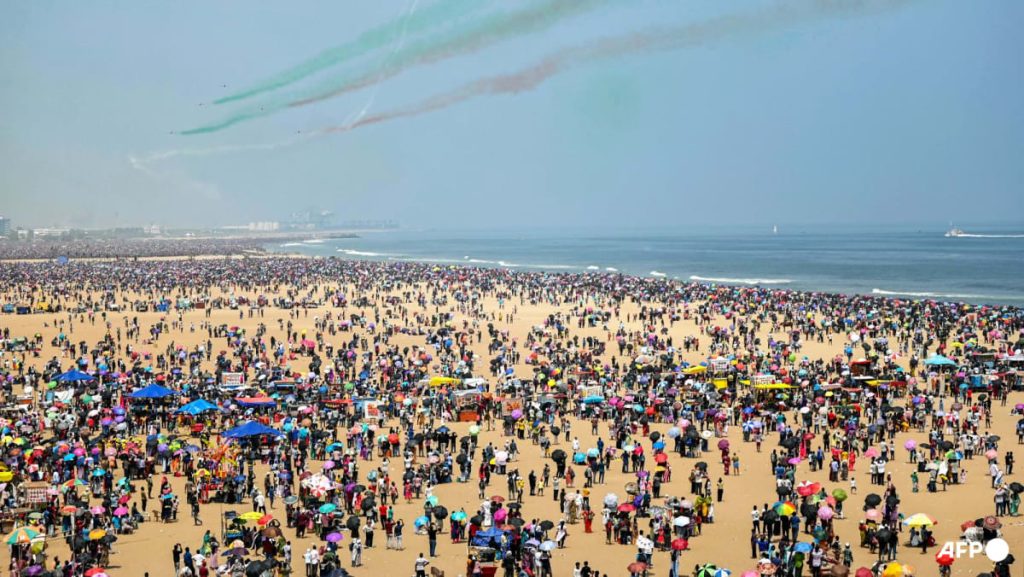At an Indian Air Force air show in Chennai to celebrate the air force’s 92nd anniversary, at least three people died of suspected heat stroke on a day where the maximum temperature reached 35 degrees Celsius. The event, which was attended by about 1.5 million people, took place at Marina Beach, one of the world’s longest beaches. According to police officers, two individuals died from dehydration and heat-related causes while attending the air show, while a third person died due to heat.
Witnesses reported that there was no water supply at the air show despite the hot and humid weather, resulting in people fainting due to lack of air circulation and dehydration. Additionally, the exit after the event was chaotic, with roads becoming congested and buses getting stuck. Chandramohan, a software engineer who attended the event, described the situation as challenging and stressful due to the lack of proper arrangements for crowd management and health care.
Ma Subramanian, state minister for medical and family welfare, mentioned in a statement that the government had provided medical teams, security personnel, temporary toilets, and drinking water supply for the air show. However, there were still reports of inadequate facilities and mismanagement at the event, leading to tragic consequences. Officials from the air force did not immediately address the concerns or provide any comments on the incidents that occurred during the air show.
The deaths of three individuals at the air show in Chennai raised concerns about the lack of preparedness and infrastructure to handle such large-scale events, especially in extreme weather conditions. The incident also highlighted the importance of ensuring the safety and well-being of attendees by providing sufficient resources and facilities. The tragic outcome of the air show serves as a reminder of the need for proper planning and coordination to prevent such incidents from happening in the future.
As investigations into the deaths continue, authorities and event organizers need to assess the shortcomings and take necessary steps to avoid similar incidents in the future. It is essential to prioritize the safety and health of the public when hosting events of such magnitude, and the lessons learned from this unfortunate incident should be used to improve emergency response and crowd management strategies. By implementing appropriate measures and addressing the identified deficiencies, the chances of heat-related casualties at large gatherings can be minimized.
Ultimately, the deaths at the Indian Air Force air show in Chennai underscore the importance of effective planning, coordination, and execution of events to ensure the safety and well-being of attendees. The tragic incident serves as a wake-up call for authorities, organizers, and stakeholders to re-evaluate their strategies and protocols for hosting large-scale gatherings, particularly in challenging weather conditions. By learning from the mistakes made during the air show, preventive measures can be put in place to safeguard the public and prevent such unfortunate incidents from occurring in the future.













